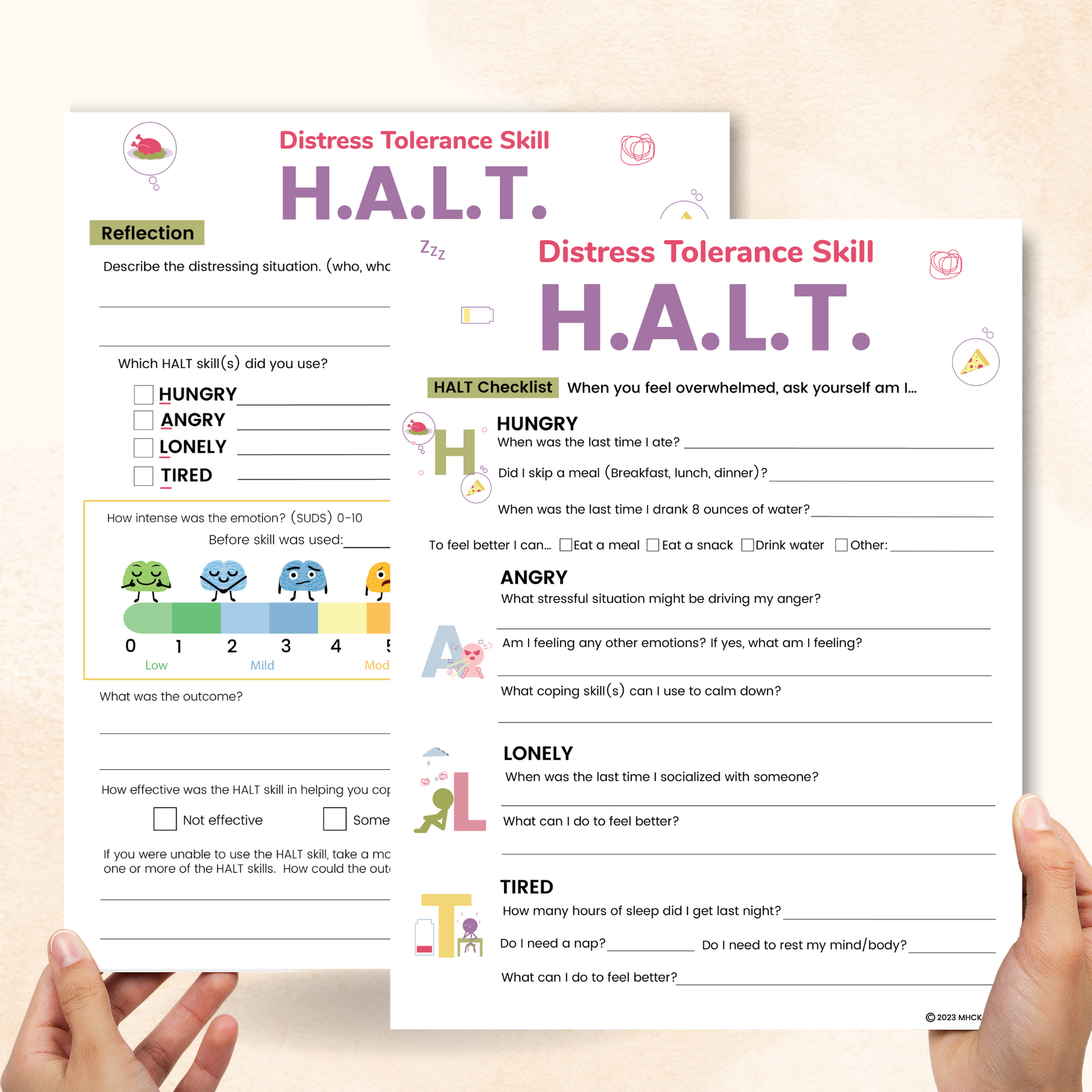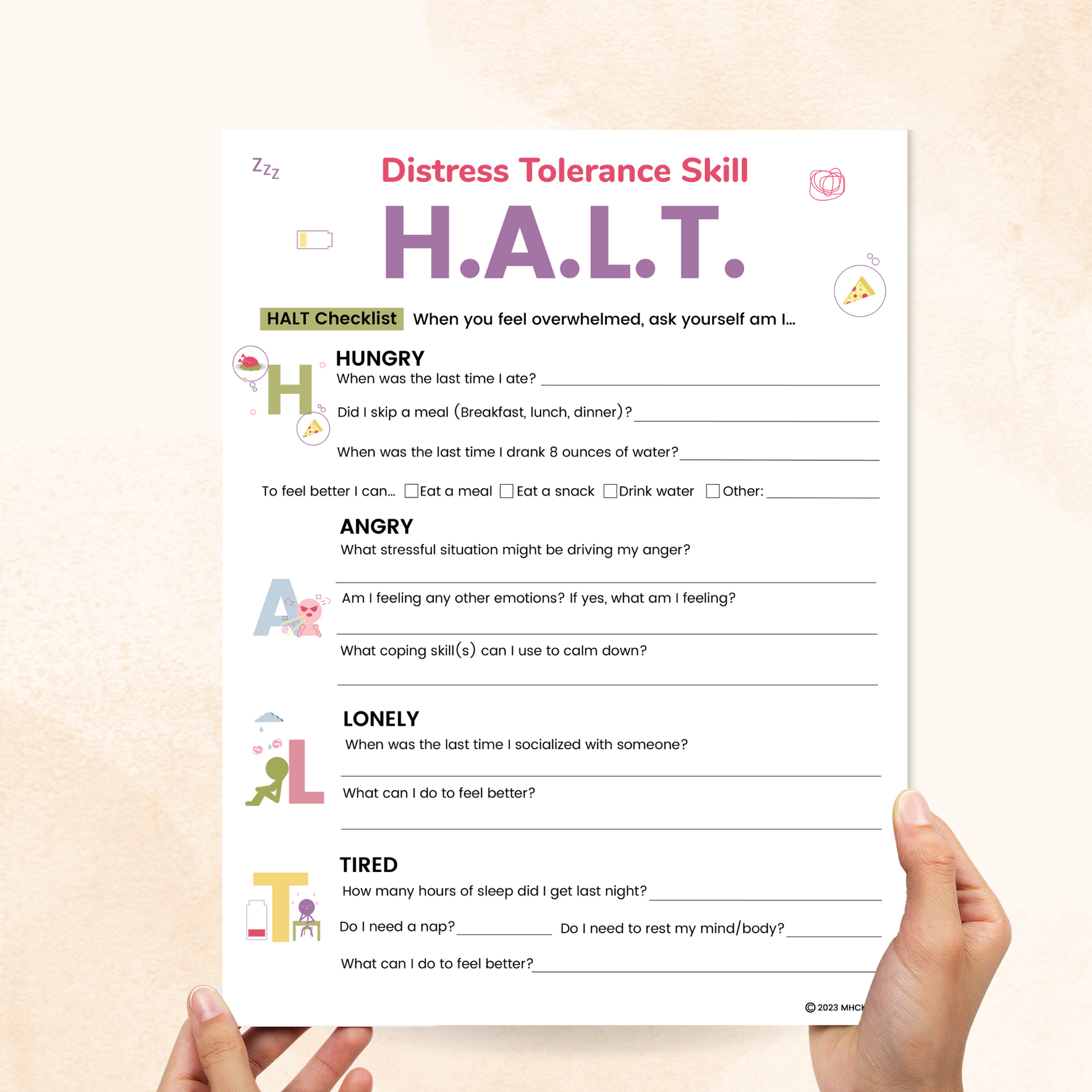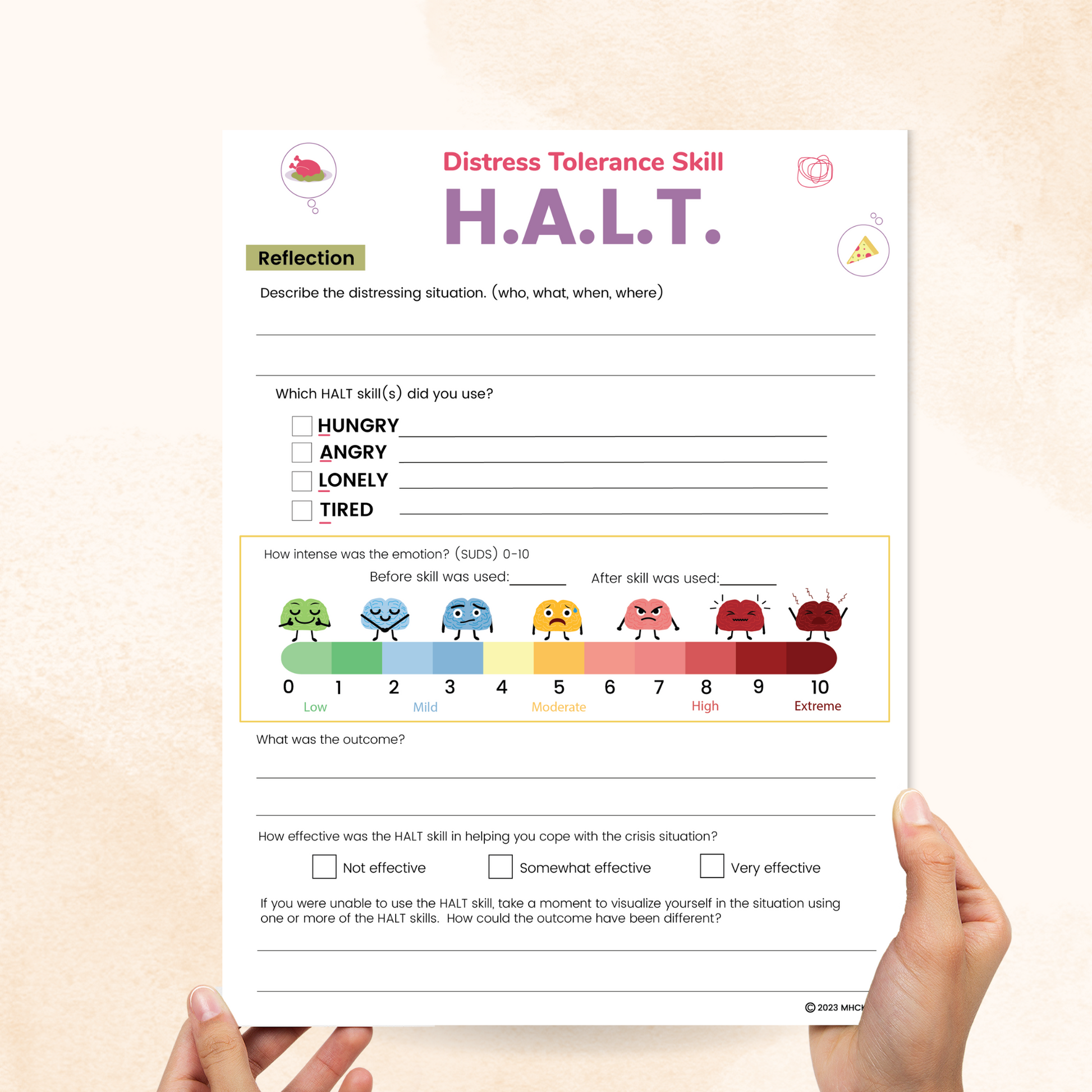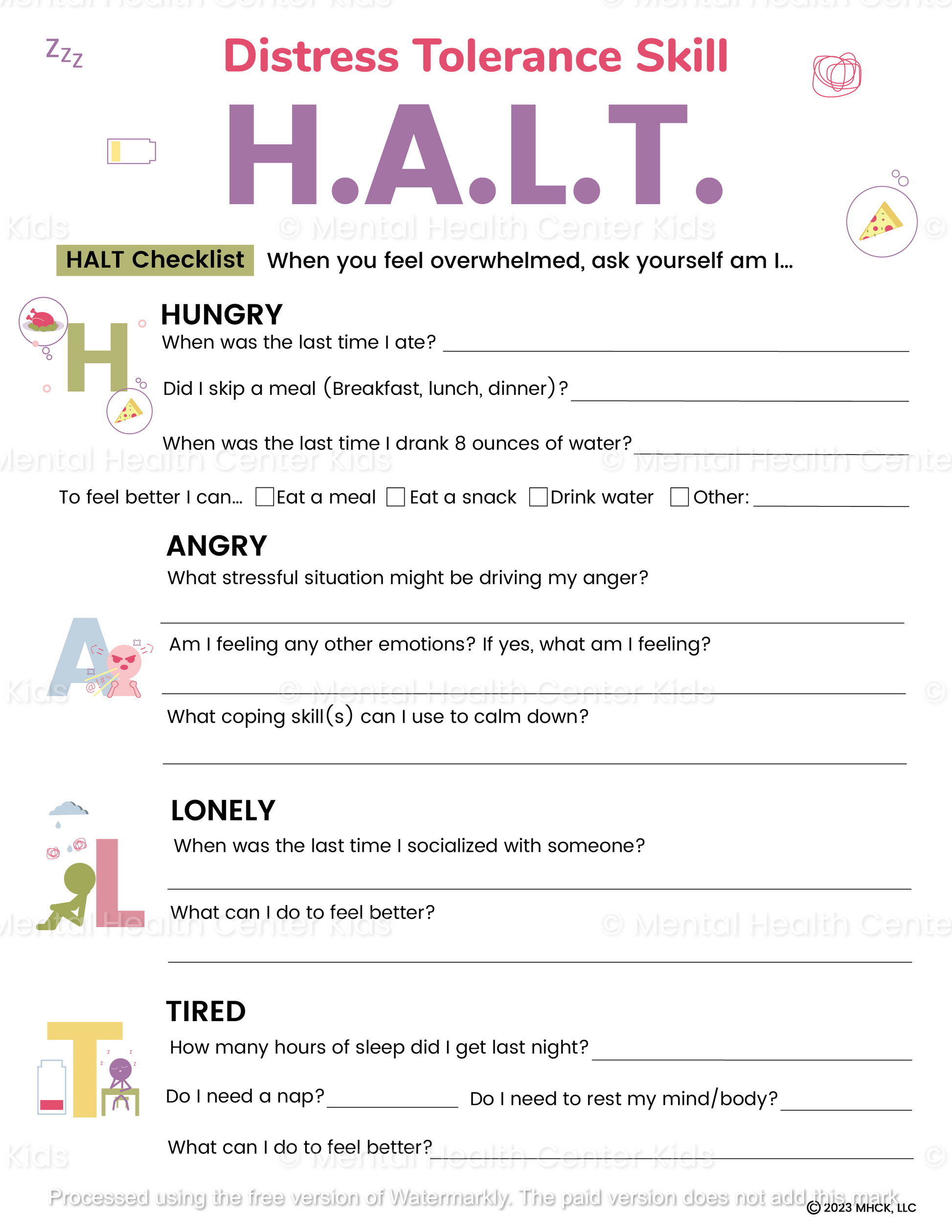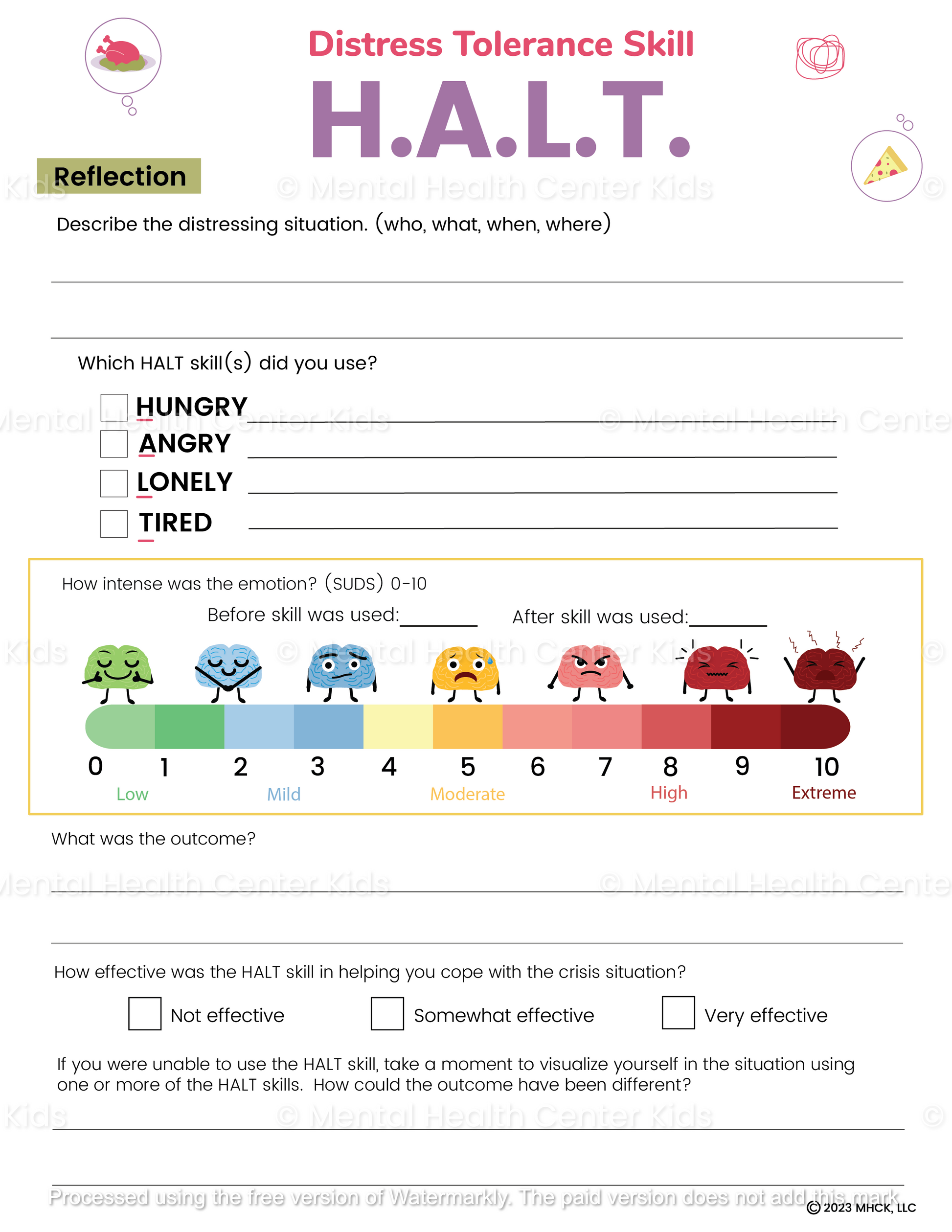DBT HALT Skill Worksheet
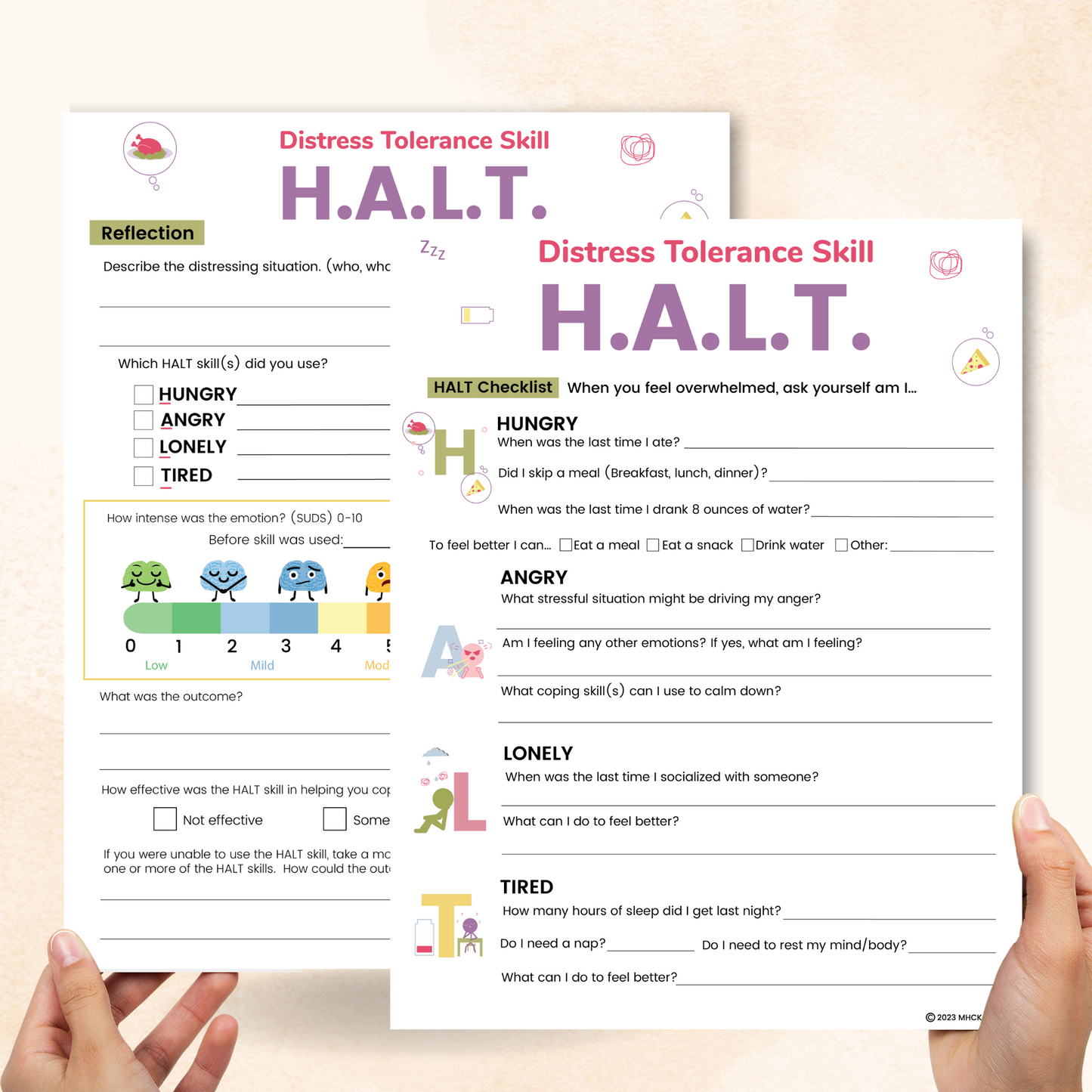
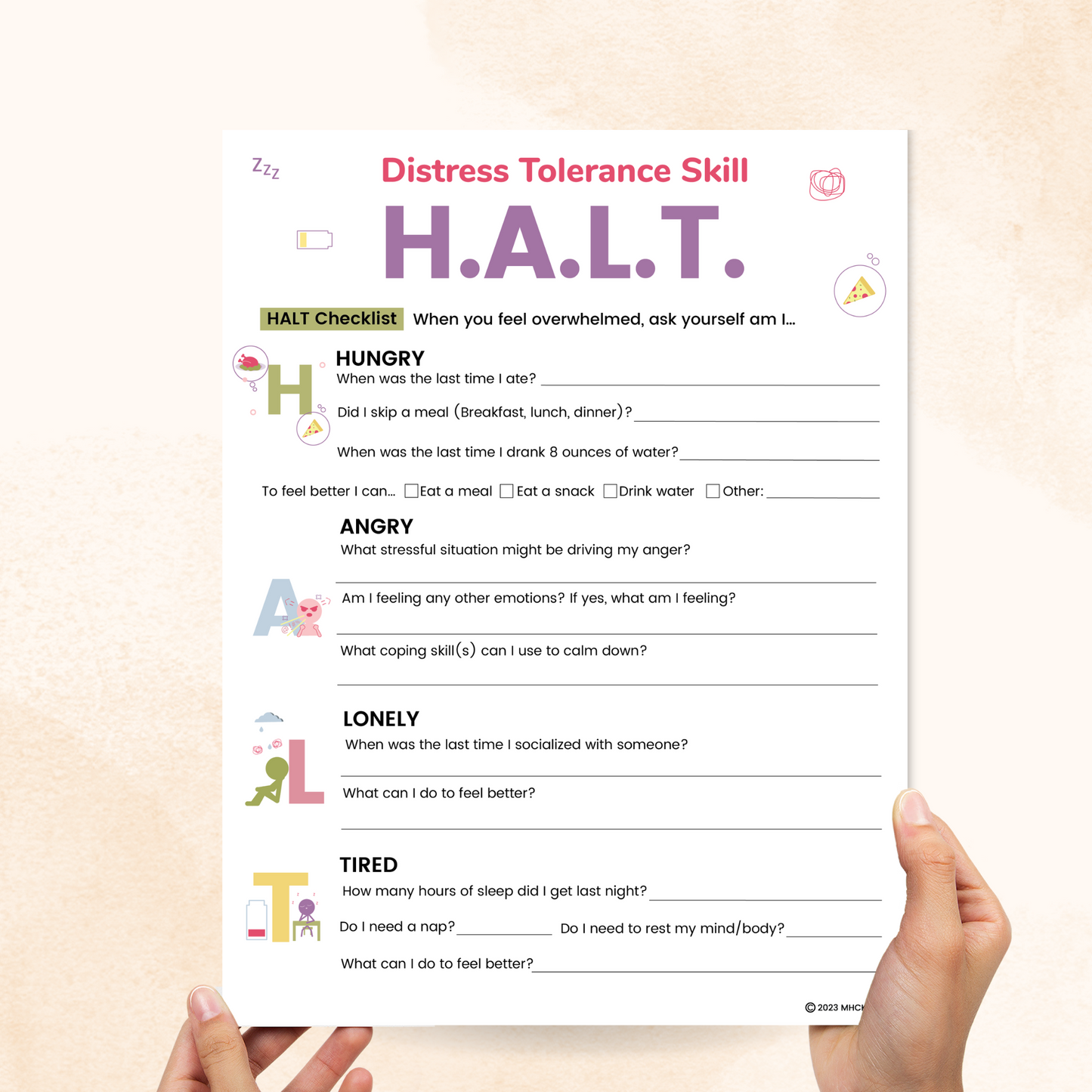
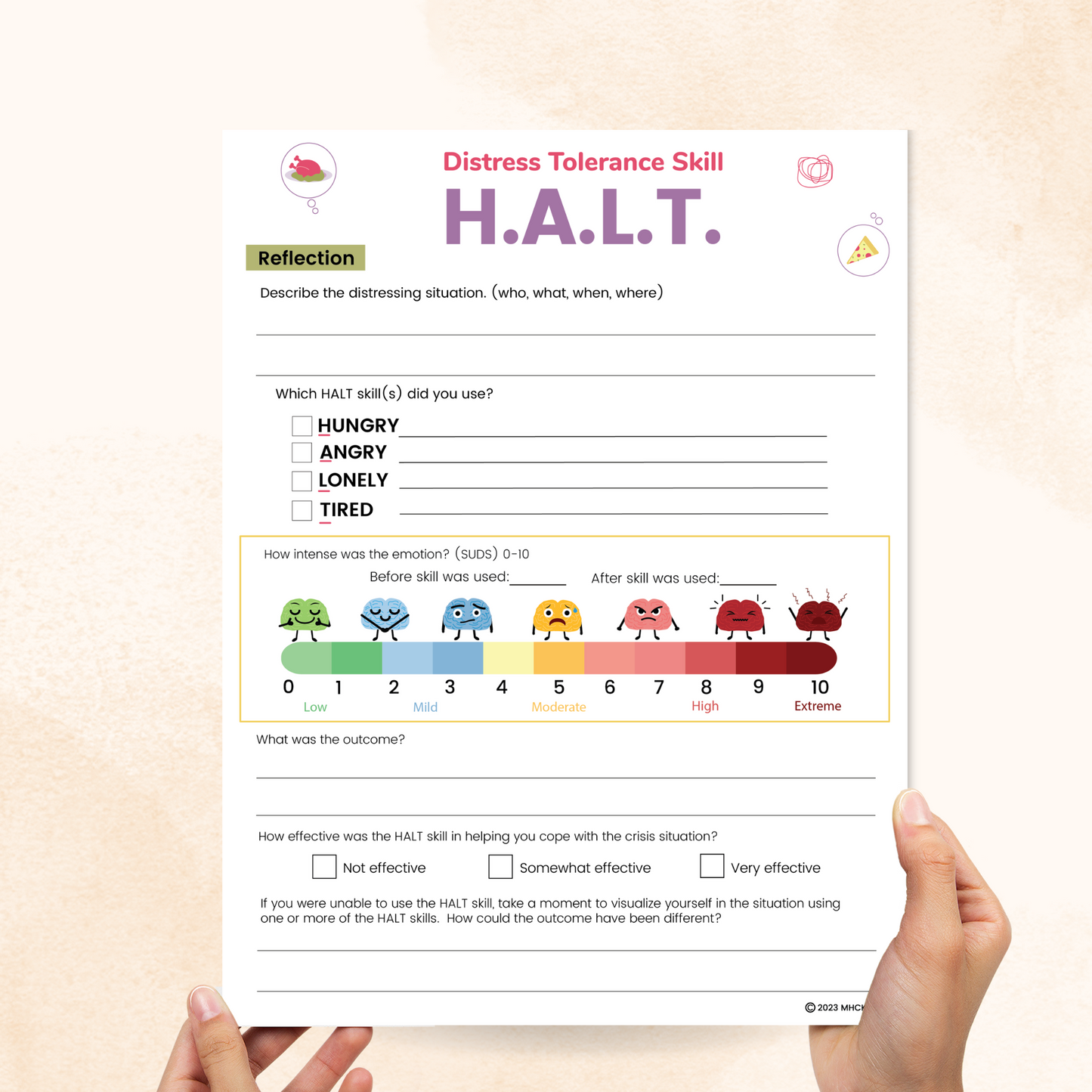
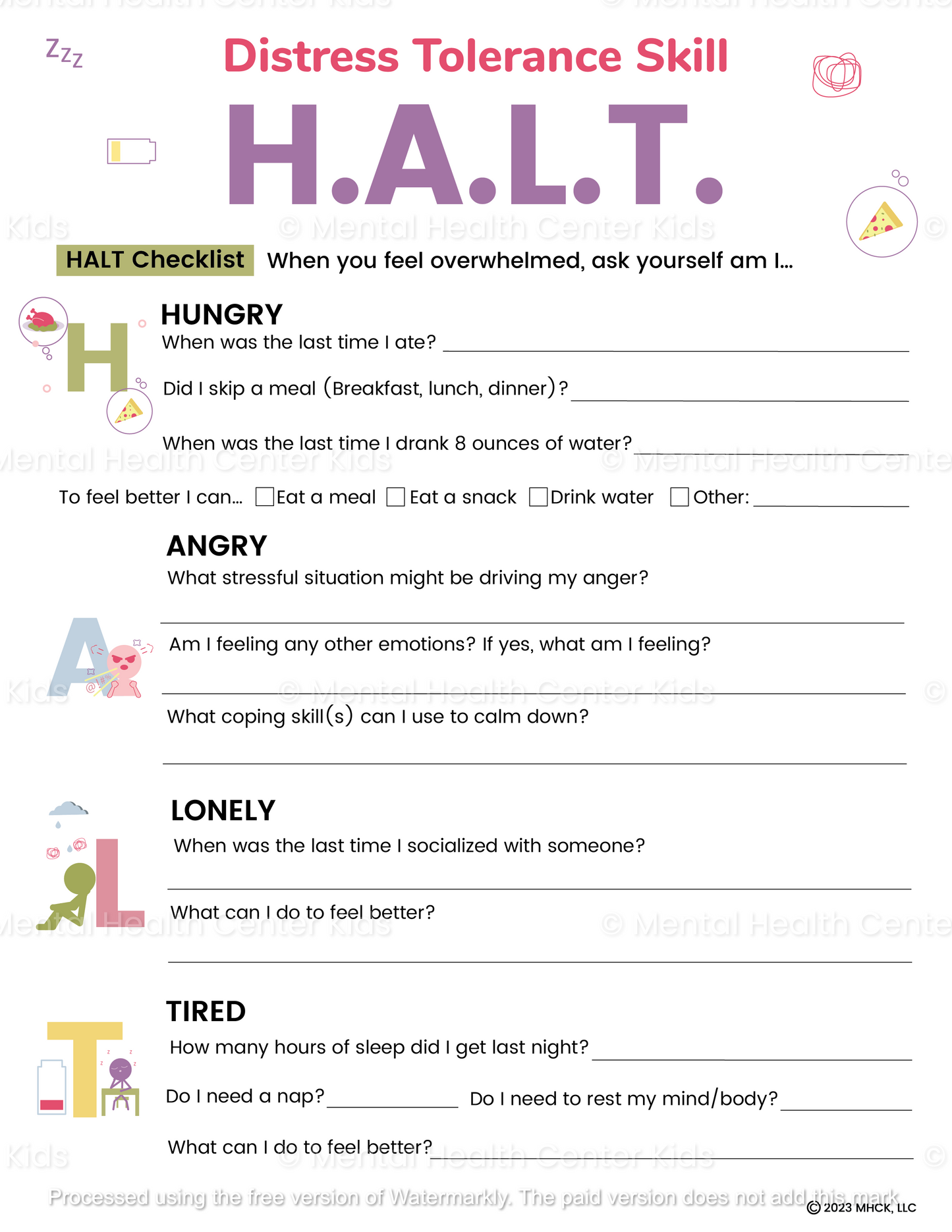
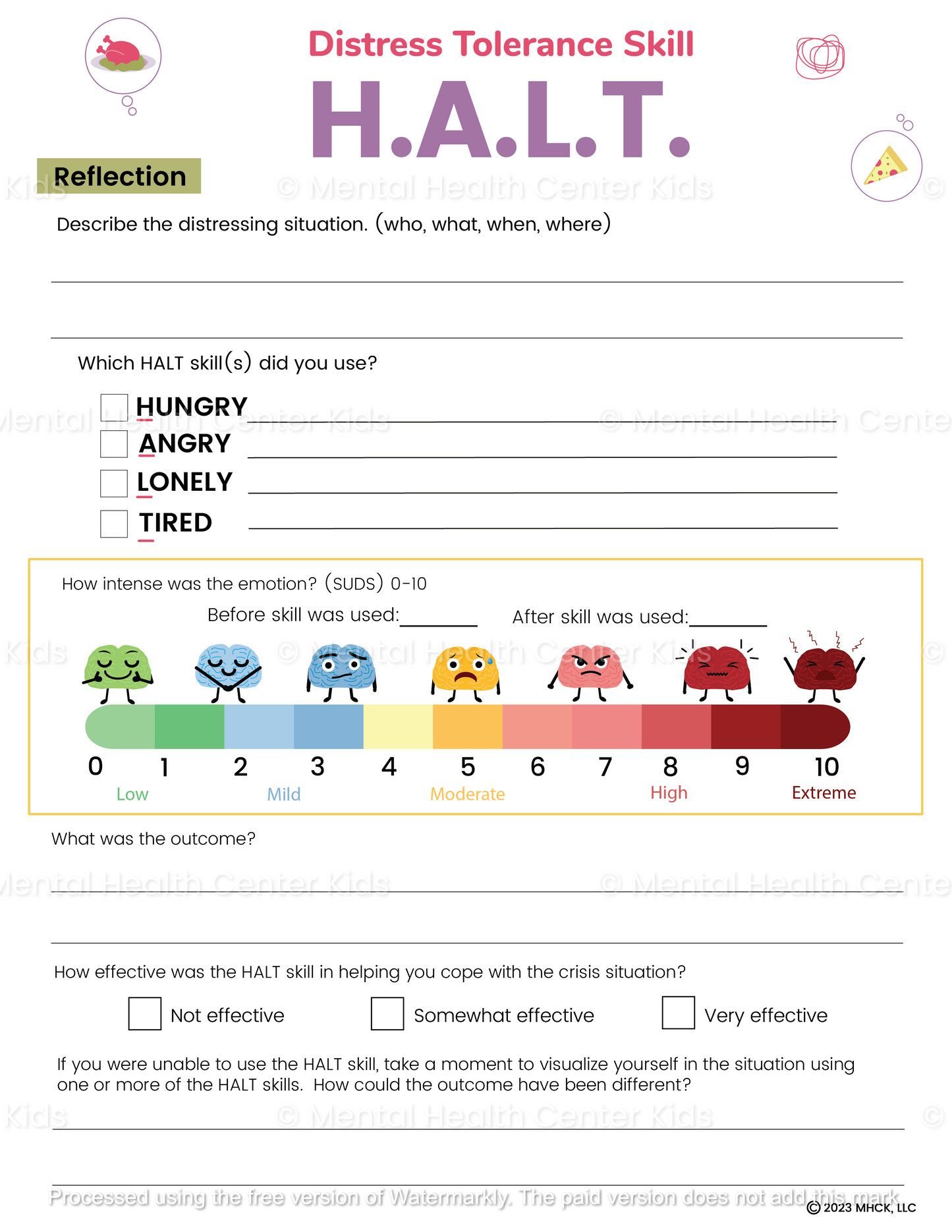
Self-care, which might include emotional, psychological, and physical care, varies from person to person. Poor self-care has the potential to result in HALT, which stands for Hungry, Angry, Lonely, and Tired. Poor eating habits, a lack of quality sleep, poor management of stress or frustration, and feeling isolated are some of the things that contribute to HALT. These early warning signs can help you avoid self-destructing behaviors and develop healthy coping skills.
The DBT HALT Skill Worksheet features two separate worksheet activities, which include a checklist questionnaire and a reflection sheet. The check-in questions aim to understand the current physical or emotional states of an individual. Clients can also rate the intensity of their current emotions and reflect on the outcome of their coping skills.
Using these worksheets can help kids and teens build self-awareness and resilience when dealing with distressing situations. They will be reminded to have their glass of water, plan a coping skill to calm down, engage with their loved ones, and get enough rest to help them recover physically from distress.
The DBT Halt Handout is a nice visual aid to attach to these worksheets.
*This item is an instant digital download. A link to download your files will be emailed to you once payment is confirmed.
Want more resources like this? Check out our full catalog of DBT worksheets and handouts.
References:
- Melemis, S. M. (2015). Focus: addiction: relapse prevention and the five rules of recovery. The Yale journal of biology and medicine, 88(3), 325.
- What, O. (2015). Using Relaxation Techniques. Communication in Nursing-E-Book, 210
- Instant digital download
- File: Fillable PDF - 2 Pages
- Size: 8.5" x 11"


